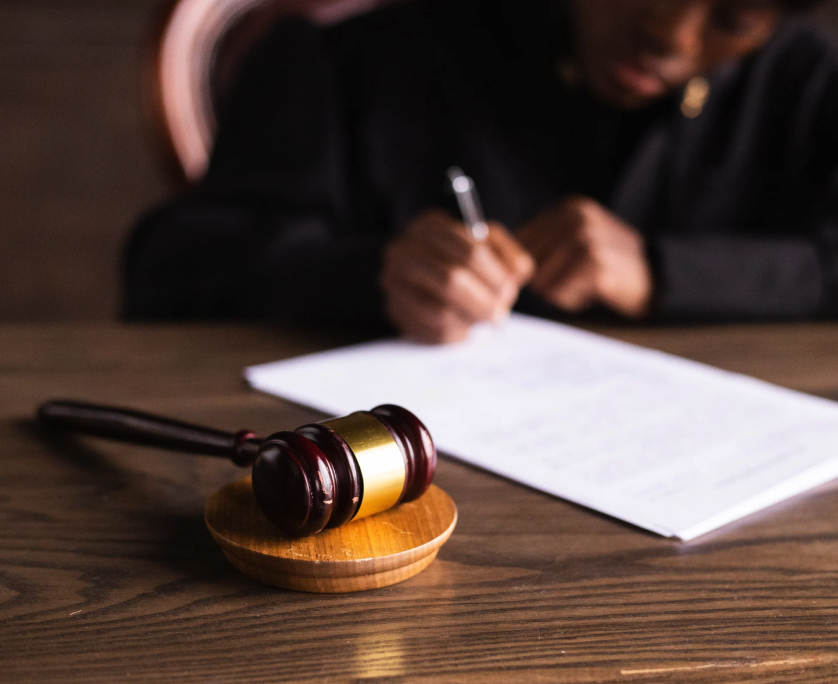TL;DR – GLP-1 Lawsuits at a Glance
- The drugs: GLP-1 receptor agonists and dual GIP/GLP-1 agents, including semaglutide, tirzepatide, dulaglutide, liraglutide, lixisenatide, and exenatide.
- Top alleged injuries: Gastroparesis (stomach paralysis), ileus/intestinal obstruction, persistent vomiting, severe dehydration/malnutrition. These medicines slow gastric emptying, which helps explain GI effects.
- Current MDL: MDL No. 3094 (E.D. Pennsylvania) centralizes personal-injury claims involving GLP-1 receptor agonists.
- Who may qualify: Use of a covered generic drug and documented severe GI events (e.g., ER visits, hospitalizations, imaging showing delayed emptying/obstruction), especially if symptoms persisted after stopping.
- Next steps: Get a free case review, gather records (prescriptions, imaging, GI notes), and we’ll help you evaluate a potential claim or MDL filing.

What Are GLP-1 Injections?
GLP-1 receptor agonists mimic the gut hormone GLP-1 to lower blood sugar, slow stomach emptying, and increase fullness. A newer dual GIP/GLP-1 agent also targets the GIP pathway for additional metabolic effects. Generics include semaglutide, tirzepatide, dulaglutide, liraglutide, lixisenatide, and exenatide.
How they work (simple): trigger insulin when you eat, curb glucagon, delay gastric emptying, and reduce appetite/satiety signals – useful for type 2 diabetes and, for certain formulations, chronic weight management.
Common dosing cadence & approved uses
| Molecule | Typical dosing cadence* | FDA-approved uses (high level) |
|---|---|---|
| Semaglutide | Weekly injection; daily oral formulation | Type 2 diabetes; certain formulations for chronic weight management |
| Tirzepatide | Weekly injection | Type 2 diabetes; certain formulations for chronic weight management (dual GIP/GLP-1) |
| Dulaglutide | Weekly injection | Type 2 diabetes |
| Liraglutide | Daily injection | Type 2 diabetes; certain formulations for chronic weight management |
| Lixisenatide | Daily injection | Type 2 diabetes |
| Exenatide | Twice-daily or weekly injection (ER) | Type 2 diabetes |
*Cadence reflects molecule families, not medical advice. Follow your prescriber’s directions.
Reported Injuries Linked to These Drugs (and Why)
Key GI injuries alleged in litigation
- Gastroparesis (delayed gastric emptying) – persistent nausea/vomiting, early fullness, abdominal pain, poor appetite.
- Ileus/intestinal obstruction – severe bloating, inability to pass stool/gas, cramping, vomiting.
- Complications – dehydration, electrolyte imbalance, malnutrition, esophageal irritation from repeated vomiting.
Why it’s plausible: GLP-1 drugs slow gastric emptying by design; reviews and clinical literature describe this effect, which can, in some patients, be associated with retained gastric contents and delayed emptying.
Symptom triage (not medical advice):
Go to the ER now if you cannot keep fluids down >24 hours, have persistent vomiting, signs of obstruction, or severe dehydration.
Call your doctor promptly for ongoing nausea, abdominal pain, or early fullness that isn’t improving.
Helpful overviews on gastroparesis and symptoms: Cleveland Clinic & Healthline.
Is There a GLP-1 Lawsuit MDL?
Yes. Personal-injury claims involving GLP-1 receptor agonists are centralized in MDL No. 3094 in the Eastern District of Pennsylvania. Centralization streamlines pretrial processes (e.g., Plaintiff Fact Sheets, discovery) for efficiency while each case remains individual.
At a glance:
- Court: U.S. District Court, E.D. Pa.
- Scope: Personal-injury claims alleging GI injuries such as gastroparesis, ileus, and obstruction tied to GLP-1 RAs.
- Procedure: Direct filing and case-management orders govern standardized discovery across cases.
We can help you evaluate whether your case fits the MDL pathway or another filing strategy.
Do I Qualify? (Quick Checklist)
You may qualify for a GLP-1 lawsuit if you:
- Used semaglutide, tirzepatide, dulaglutide, liraglutide, lixisenatide, or exenatide before your symptoms began.
- Were diagnosed with a severe GI condition (e.g., gastroparesis, ileus/obstruction) or had ER visits/hospitalizations, NG-tube placement, or required IV fluids.
- Have imaging/endoscopy or gastric emptying studies showing delayed emptying or obstruction.
- Experienced ongoing symptoms even after dose reduction or discontinuation.
- Did not have the same diagnosed GI condition prior to using the drug.
This is general information, not legal advice. Eligibility depends on your records and timeline in relation to MDL criteria.

What Evidence Helps the Most?
Bring what you can – we’ll do the heavy lifting:
- Prescription/pharmacy records showing the generic drug, dose, and dates dispensed.
- GI specialist notes, ER/hospital records, endoscopy/imaging (e.g., gastric emptying scans).
- Primary-care notes documenting symptom onset, referrals, and medication changes.
- Work-loss proof (timesheets, HR letters) and out-of-pocket costs.
- Symptom diary (nausea/vomiting frequency, hydration issues, diet tolerance).
Our intake and medical-records team can request and organize these materials for you.

Compounded / “Skinny Jab” Products: Where Things Stand
The FDA has declared the national shortage of semaglutide injection products resolved and has taken enforcement steps that limit compounding of copies when an FDA-approved product is available. Recent rulings have upheld the agency’s removal of semaglutide from the shortage list, curbing unauthorized large-scale compounding. Consumers should be wary of unapproved compounded versions sold online or via social media.
Safety PSA (for consumers):
- Use only with a valid prescription from a licensed clinician and fill at a state-licensed pharmacy.
- Avoid telemarketing/social-media sellers and products with misspelled labels or suspicious packaging.
- Compounded drugs are not FDA-approved and may vary in quality, strength, or sterility.
- Report suspected issues to your provider and FDA’s MedWatch.
- When in doubt, talk to your doctor or pharmacist.
FAQs
Which generic drugs are in these lawsuits?
Claims commonly involve semaglutide, tirzepatide, dulaglutide, liraglutide, lixisenatide, and exenatide – all GLP-1 class or dual GIP/GLP-1 agents. Bottom line: If you used one of these generics and suffered severe GI complications, ask about a case review.
What is gastroparesis?
A disorder where the stomach empties slowly, causing nausea, vomiting, early fullness, and bloating. Bottom line: Documented delayed emptying plus drug exposure can support a claim.
Do cases cover ileus/obstruction?
Yes, ileus and intestinal obstruction are among the GI injuries alleged in the MDL. Bottom line: Imaging or operative records are key evidence.
What’s the difference between semaglutide and tirzepatide?
Semaglutide is a GLP-1 receptor agonist; tirzepatide is a dual GIP/GLP-1 agent that activates two incretin pathways. Bottom line: Both can slow gastric emptying; mechanism differences don’t rule out GI risks.
Is there a GLP-1 MDL and how does it help?
Yes – MDL No. 3094 (E.D. Pa.) centralizes pretrial proceedings to reduce duplicative discovery and promote efficiency, while each case stays individual. Bottom line: Consolidation can lower costs and speed up common issues.
Are compounded injections legal/safe now?
Compounding may be appropriate in narrow situations, but unapproved copies are not FDA-approved. With shortages resolved, large-scale compounding is restricted, and enforcement is increasing. Bottom line: Stick with FDA-approved products from licensed pharmacies; talk to your doctor.
Do “skinny jabs” really cause stomach paralysis?
Media hype (the “Hollywood’s worst-kept secret,” “King Kong of weight loss,” etc.) has spotlighted GLP-1 drugs, but the medical issue is delayed gastric emptying that, in some patients, is linked to gastroparesis-like symptoms. Bottom line: New or severe GI symptoms warrant medical care and a legal review if you’ve used these generics.
